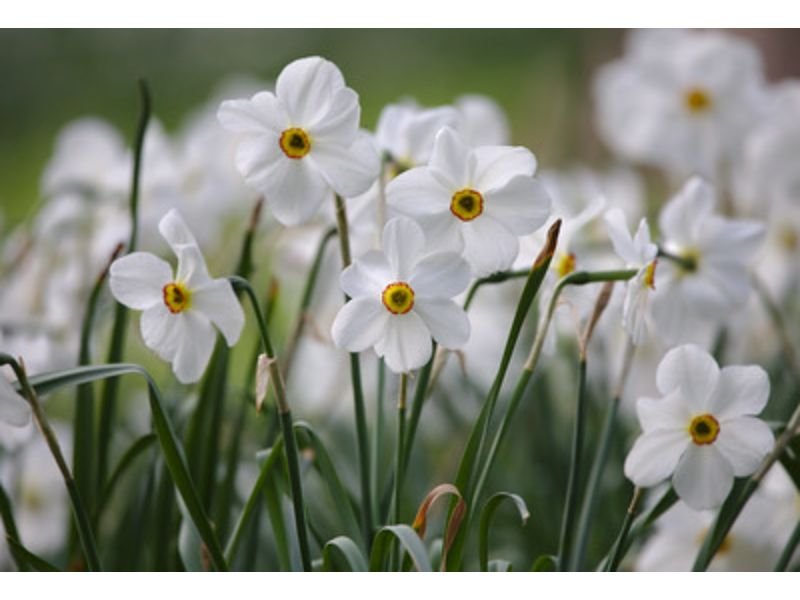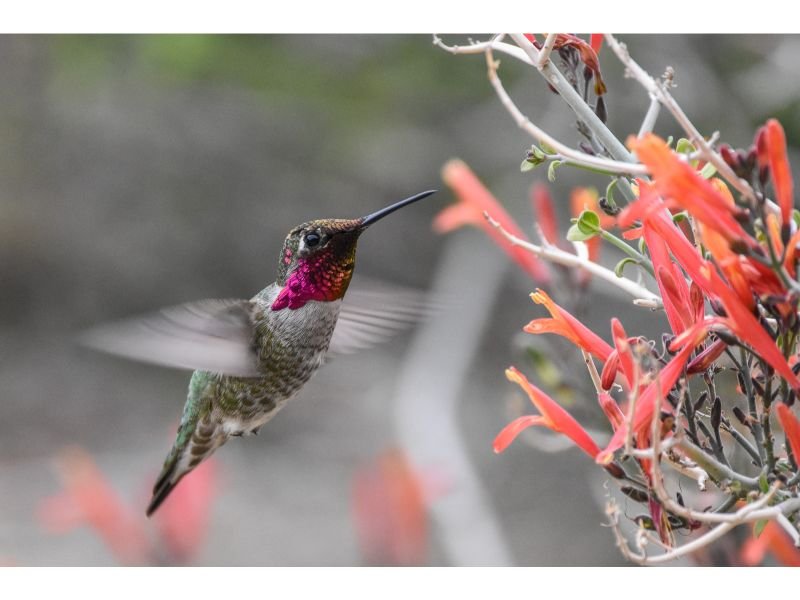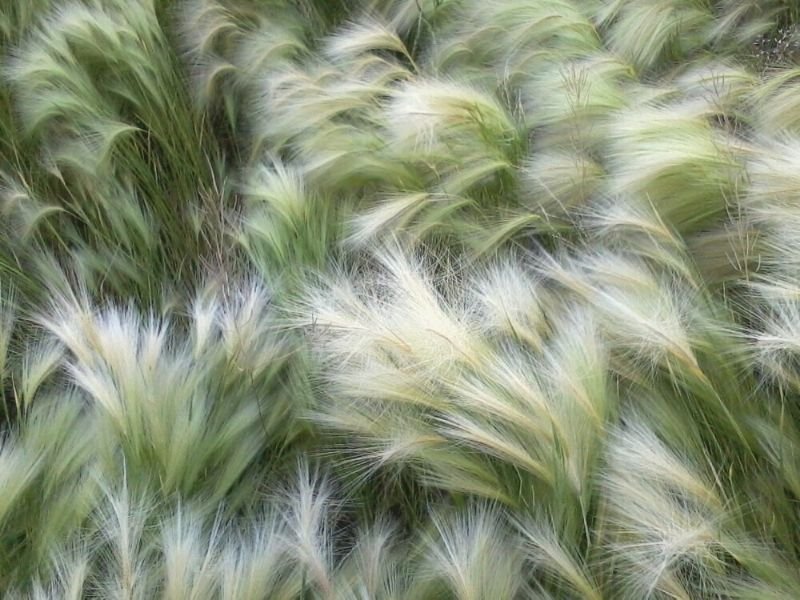Although almost every red flower needs a full-sun bath to thrive, the others have adapted to grow in shady areas where the sunlight is inadequate. Nonetheless, unlike their cousins, shade-loving red flowers have developed different types of chloroplasts to help them survive under such growing conditions. Furthermore, let’s say goodbye to the empty shady areas in your garden. From now on, you can plant these best red flowers for shade–because shady gardens deserve some attention and love too!
Without further ado, let’s explore together.
Table of Contents
Red Perennials Flowers For Shade
Perennial plants have become an indicator of a good and healthy environment since not all plants could thrive one after another season in the same place, especially if there’s some lethal change in the ecosystem. Growing red perennials for shade could mean a higher cost of maintenance and long-term commitment, however, these perennial red flowers for shade will present you with their showy, long-lasting blossoms!
Red Peruvian Lily (Alstroemeria hybrids)
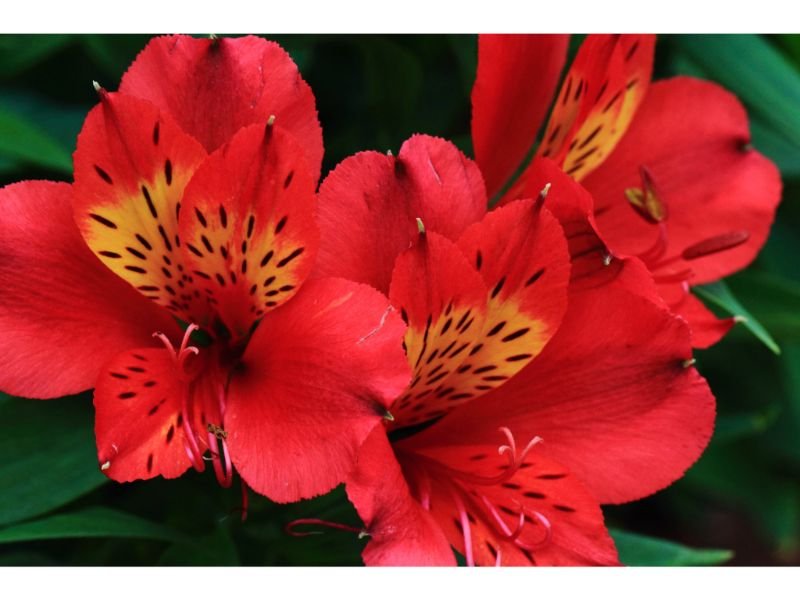
Hardiness Zone: 8 to 10
Water Needs: Regular watering, keeping the soil moist
Soil Needs: Chalk, loam, sand
Blooming Season: Spring
The first best red flowers for shade are the red Peruvian lilies. These warm tropical flowering plants are the ultimate low-maintenance houseplants that create such spectacular-cut flowers for your vase. Take note to not touch the red Peruvian lily directly. This plant contains a high level of glycosides.
Painter’s Palette (Anthurium)

Hardiness Zone: 11 to 12
Water Needs: Regular watering, keeping the soil moist
Soil Needs: Loam
Blooming Season: Summer
Painter’s palette, commonly known as the flamingo flower, is a tropical flowering plant native to tropical regions of America. With their evergreen blooms that range from red to deep magenta color and bright yellow or red spadix, no wonder painter’s palettes are one of the best red flowers for shade nursery.
Red Scotch Heather (Calluna vulgaris)
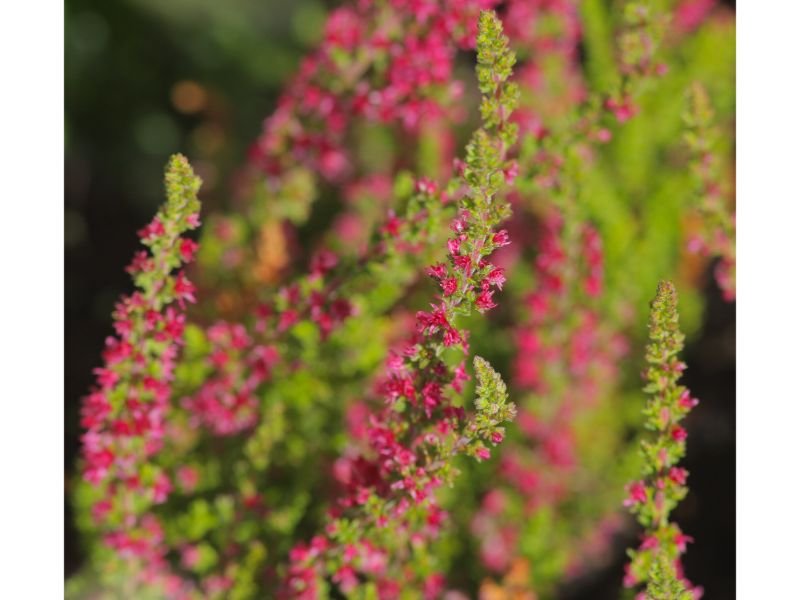
Hardiness Zone: 4 to 6
Water Needs: Regular watering, about once or twice a week
Soil Needs: Sandy, high organic matter
Blooming Season: Fall, Summer
If you’re looking for red flowers for shade but with lavender-like blooms, you should try the red scotch heathers. This poor soil and drought-tolerant plants grow anywhere from 10 to 60 centimeters tall and need little to no fertilizers.
Hardy Fuchsia (Fuchsia magellanica)

Hardiness Zone: 6 to 9
Water Needs: Regular watering, two to three times a week
Soil Needs: High organic matter
Blooming Season: Summer
The following best red flowers for shade areas are native to Argentina and Chile. This exotic-looking flowering and ornamental plant produce fuchsia-like blooms that grow upside down. They are easy to maintain and also can be grown in small areas like containers and pots.
Easter Cactus (Schlumbergera gaertneri)
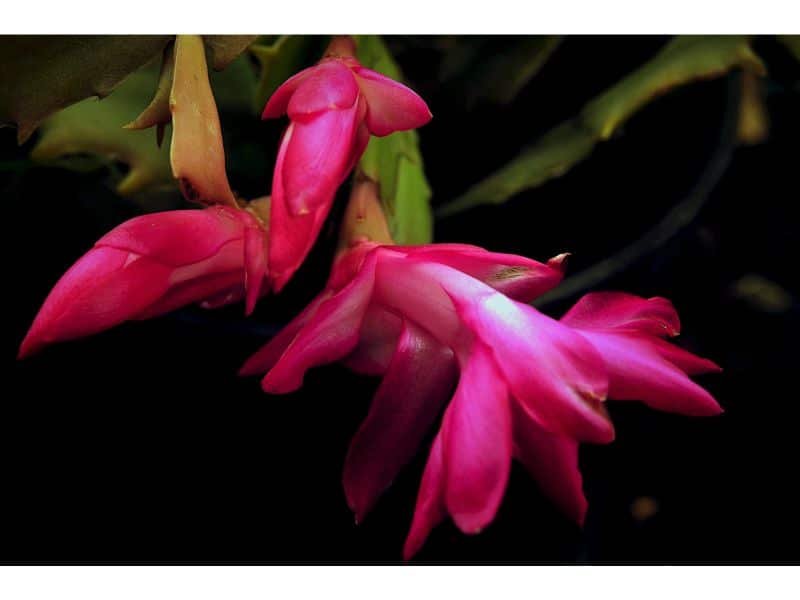
Hardiness Zone: 10 to 12
Water Needs: Keep a regular, light watering
Soil Needs: Well drained
Blooming Season: Spring
Are you a fan of cactuses? These red perennials for shade are then made for you. Guaranteed low maintenance, the easter cactus got its name because of its blooming time, which is around Easter time. They have showy, funnel-shaped blooms along with fleshy dark green or bright green foliage.
Red Primrose (Primula x polyantha)

Hardiness Zone: 3 to 8
Water Needs: Keep well-watered
Soil Needs: Well-drained, high organic matter soil that occasionally moist
Blooming Season: Spring
This classic and stunning beauty is a hybrid species of the common primrose. Along with red, this flowering plant also comes in many colors. It can be a combination of crimson red and yellow, blue, pink, or yellow. Red primrose makes the best companion plant for alluring bleeding hearts and hostas.
Red Annuals Flowers For Shade
If you’re the type of gardener that loves to explore, growing red annuals for shade is then your best bet. Although all annuals usually have a shorter life span, they tend to have a longer blooming time than their perennial counterparts. Take a look at these annual red flowers for shade gardens.
Love-lies-bleeding (Amaranthus caudatus)

Hardiness Zone: 2 to 11
Water Needs: Keep regular watering, once or twice a week
Soil Needs: Well-drained soil, tolerates poor-soil
Blooming Season: Fall, Summer
Aside from their adaptability to grow in almost every hardiness zone, these best red flowers for shade also produce such peculiar blossoms. The love-lies-bleeding blooms are long, thin, velvety, dropping, and showy–weirdly resembling a cat’s tail!
Indian Blanket Flower (Gaillardia pulchella)
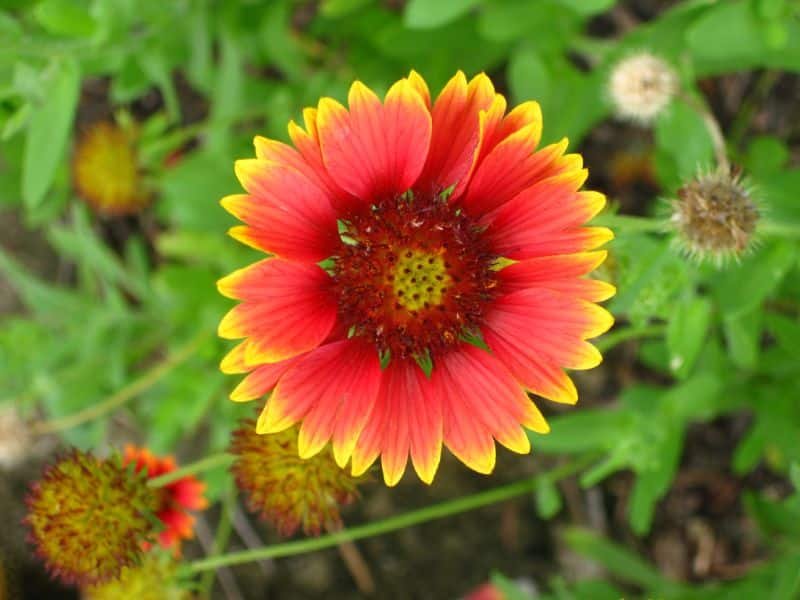
Hardiness Zone: 5 to 9
Water Needs: Keep regularly, the plant tolerates dry soil
Soil Needs: Sand, well-drained
Blooming Season: Fall, summer, winter
Although the Indian blanket flower got the word ‘Indian’ as its common name, this one of the best red flowers for shade is not native to India. In fact, this showy flowering plant is native to the Central and Southern parts of America to Northern Mexico. The name Indian of these edible, easy-to-grow wildflowers is derived from the Native American tribe.
Red Ranunculus (Ranunculus)
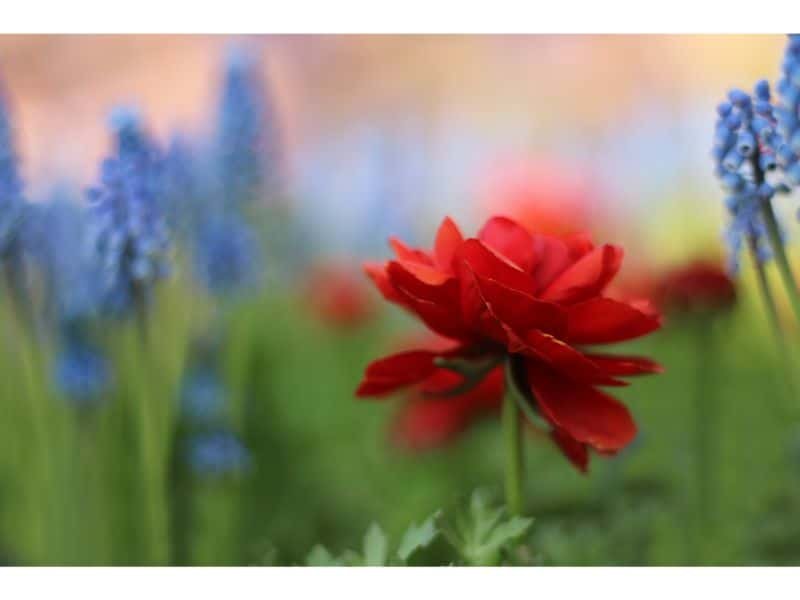
Hardiness Zone: 8 to 10
Water Needs: Keep regular watering
Soil Needs: Sand, loam, well-drained
Blooming Season: Spring, summer
Red ranunculuses are the best red flowers for shade areas as well as the rose-lovers. They produce medium, 5 to 12 centimeters blossoms, that are very similar looking to roses and lisianthus. As attractive as it may seem, it’s better to always take precautions when planting red ranunculus since they contain an irritant called protoanemonin.
Flowering Maple (Abutilon x hybridum)

Hardiness Zone: 9 to 10
Water Needs: Keep regular watering, need more water during the cold season
Soil Needs: High organic matter, clay, soil
Blooming Season: Summer
With their bright red, bell-shaped blossoms that grow upside down, there’s no exception to why the flowering maple has become the gardener’s favorite for containers and houseplants. They’re mediumly toxic and can cause skin irritation if directly touched.
Red Summer Pheasant’s Eye (Adonis aestivalis)

Hardiness Zone: 3 to 7
Water Needs: Keep regular watering and occasionally dry
Soil Needs: Sand, clay, loam
Blooming Season: Summer
Part of the Ranunculaceae Family, the red summer pheasant’s eye produces blooms with dual color–with red or reddish-orange petals and a deep dark brown center, resembling a pheasant’s eye. This shade-loving flowering plant would make a great addition to pollinator and butterfly-themed gardens.
Wind Up: Red Flowers For Shade Gardens
With these best red flowers for shade, you don’t have to worry about what to do in your shady garden area. Adore every corner of your garden as they will always be shade-loving flowering plants to grow.

New author in the hood. Loves gardening and flowers are my spirit animals (yes I know they are not animals but I insist). I will be covering most of the flowers’ topics here and occasionally random though as well.

